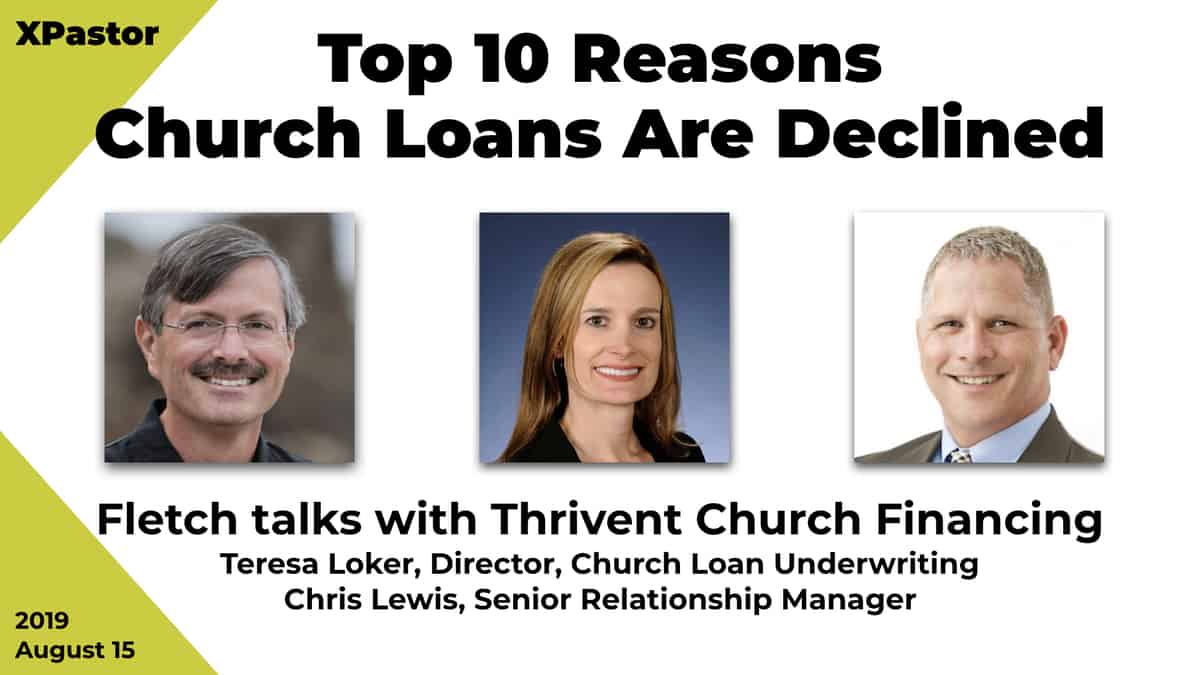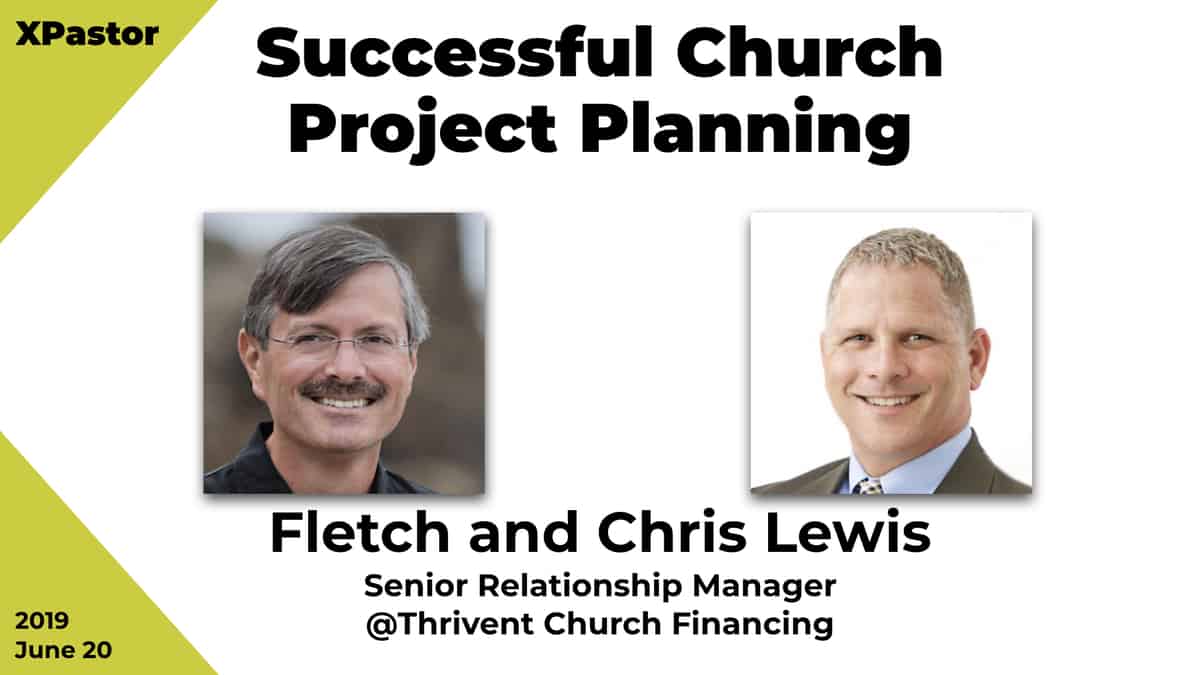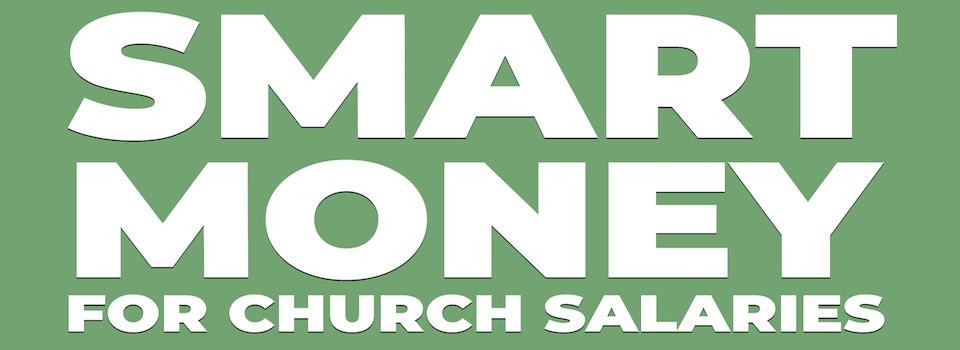Borrowing money has become a way of life for many. And credit use raises more than a few questions: what does the Bible say about money? Does church financing have a place in building the kingdom?
What does Scripture say?
The truth is that Scripture says a lot about money and decision-making.
- Believers are not to presume upon the future (James 4:13-15)
- Believers are to avoid getting into a position of financial bondage (Prov. 22:7)
- We are to store up treasures in heaven because this reveals our true heart (Matt. 6:20-21)
- We are told we cannot serve two masters, both God and money (Matt. 6:24)
These biblical principles establish guidelines for Christian behavior that can specifically be applied to the use of money.
Borrowing or financing: Consider the difference
Financing and borrowing are two words frequently interchanged to mean the same thing. Their meanings have blurred together over time. The Oxford English Dictionary defines borrowing as “the temporary use of a thing or money,” while financing implies “the management of money.” The two words carry different connotations. To expand, borrowing in a financial sense involves pledging ownership of income or assets even before they are earned or acquired. That is, promising what you don’t yet possess.
Borrowing: Banking on the future
Considered from this viewpoint, borrowing can be argued to violate all the principles outlined previously. When you borrow, you presume that the future will deliver the money or asset that you will need to repay your loan. You have also bound your church to the organization to which it owes what it has yet to attain. Finally, you have greatly reduced your church’s availability to be led by the Holy Spirit because it is now indebted to another “master”—the financial institution to whom you have promised the fruit of future labor.
Financing: Rearranging current resources
In contrast to borrowing, financing is consistent with the principles outlined above. It refers to the management of assets your church already owns or is acquiring. Through the use of a loan, these assets are used to achieve a more productive result. For instance, when used wisely, financing helps provide a safe and economical means for purchasing church property.
Most agree that when churches consider financing, the asset being purchased should have the potential to appreciate or produce income. The value of the asset should always exceed the amount owed against it, and the funds necessary for repayment should never come at the expense of ongoing ministry. Generally, such loans enhance the present value of an asset and fully justify the interest expense.
Need versus mutual benefit
Ideally, interest charged on loans should be limited to financing, which benefits both the receiver and the payer
of interest. For example, when a new building is financed wisely, the payment of interest may be offset by more space for a larger congregation, elimination of lease payments, and added utility, while the lender (and depositors) will benefit from interest received on their prudent investment. A loan that qualifies as financing—instead of borrowing—is well within scriptural precepts.
Reflecting on the parable of the talents found in Matthew 25:14-30, good stewardship involves wise investment of our savings … with interest. Key to this parable’s message is that money entrusted to the servant by the master could have been receiving interest in a bank. It follows that if there is an invested dollar qualified to earn interest, then there must also be a dollar on which it is acceptable to pay interest. Through wise financing, both the payer and the receiver of interest benefit from the transaction.
Financing in harmony with God’s Word
To help understand whether your church is financing or borrowing, take a minute to answer the following questions:
Do the total assets of my church exceed its liabilities?
A simple listing of all that the church owes and all it owns will tell you this. This principle will help prevent an organization with minimal assets from seeking significant financing. The church could find that its liabilities far exceed its assets and that it is in financial bondage.
Will the value of what the church is financing always exceed the balance of the loan, and do you have alternative means of repayment ready if your income were to decline significantly?
Returning to the mortgage illustration, can you be reasonably sure that the resale value of the property will be sufficient to pay off the loan at any time, if necessary? Is there another means of repayment available, such as an investment or savings? While total assets may exceed total liabilities, would liquidating other assets to meet your obligation be wise and not sacrifice ministry needs? And, would your church be willing to do this? For instance, if it came down to tapping into other ministry funds in order to pay off your church loan, would you? Remember that any loan is a moral pledge against all your church owns—not just the specific security on a given loan.
Will the benefit of whatever you are financing last longer than the life of the church’s loan?
Think twice about refinancing your church property to pay for equipment, vehicles, or even to consolidate bills. While it may seem appealing to tap into the equity of the property to pay for current expenses or short-term projects, these kinds of loans are rarely in the best interest of your church. It may seem helpful to refinance real estate to pay off other debt. However, taking 25 years to pay for something enjoyed briefly means paying the cost of a nearly-forgotten benefit many times over in interest. Using your church’s equity for short-term benefit should be carefully and prayerfully considered.
Can your church’s income from tithes and offerings cover all your obligations without sacrificing the needs of the congregation or your ability to perform ministry work?
This is a very important question and one that every church needs to carefully consider before making any loan obligation. Evaluate your budget in light of a balanced approach toward all that God has called your ministry to accomplish. If you are committing all the finances your congregation gives to the mortgage payment, ministry may well suffer and your church is likely to decrease its effectiveness to fulfill its mission.
Evaluate the bigger picture
If you answered “yes” to each of the questions above, is it time to proceed with financing plans? Not necessarily. Take a moment to consider the following:
Your motivation:
Do these material desires balance with your ministry’s desire to be used of God? Why does your church want to buy or build? Is the focus on meeting a real ministry need in your community? Buildings cannot reach people for Christ, but they can equip your congregation to reach out to your community.
Your needs versus your desires:
Impulsive financing, and the financing of desires instead of needs, is suspect. A budget and good record-keeping are essential planning tools for a ministry to make wise financial decisions.
All you own is from the Lord and is on “loan” to you:
Prayerfully seek His wisdom in the use of the assets He has entrusted to you. If the Lord wants your ministry to use financing to increase its outreach, He will show you how this will all work out for the glory of His kingdom.
It generally takes money to make ministry happen. Financing, properly applied and scripturally based, can enable a church to become more effective in reaching its community for Christ by expanding or improving facilities or restructuring debt to more favorable terms.
View the original PDF: Borrowing and the Church










